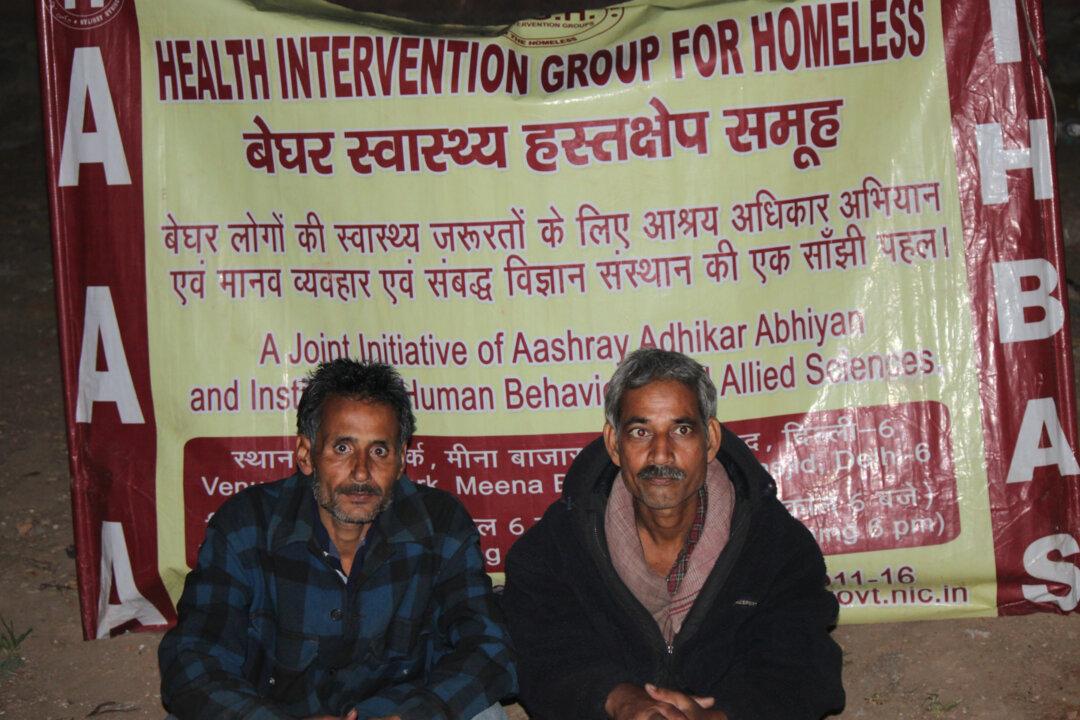NEW DELHI— Every Monday and Thursday a street side clinic for drug addicts, homeless, and the mentally ill appears amidst the clatter of hawkers and food vendors in an open-air market in congested old Delhi.
To reach the maximum number of people, the clinic starts at 6 p.m. to ensure that day laborers can come after work, and goes till 9 p.m., or whenever the last patient has been attended to.
After dark, the clinic uses streetlights, and when those don’t work, volunteers erect small, battery-powered fluorescent lights to keep the clinic going.
Unlike a hospital, this modest clinic doesn’t have wards, beds, nurses, or shiny, stainless-steel equipment.
Here the patients sign in at a registration counter made of a folding table, and then sit in a single file line on a mat to wait for the doctor, who sits nearby in a chair. After consultation, some head to another open-air counter to pick up their medicine, which is distributed free of charge.
This sparsely-staffed clinic was set up 15 years ago by an NGO and a hospital to help people without a home, a situation that itself often leads to ill-health.





